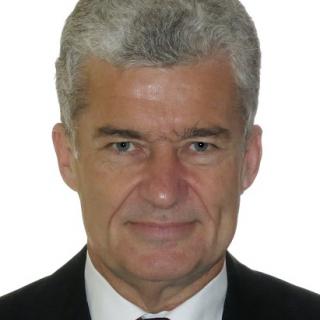Chris Murphy
Visiting Fellow, Crawford School of Public Policy
Qualifications
B.Ec (Hons, First Class, University Medal) (Sydney) M.Ec (ANU)
Chris Murphy, Visiting Fellow, ANU.
Over his career, Chris has specialised in developing and using economy-wide models for macro policy analysis, macro forecasting and tax policy analysis.
Macro Modelling
Chris developed the Murphy macro-econometric model of the Australian economy, and related Murphy-style models for the Governments of New Zealand, Singapore, Malaysia, Hong Kong and Abu Dhabi. These models are suitable for macro forecasting and macro policy analysis.
For example, the Monetary Authority of Singapore has used its Murphy-style model, known as MMS, since the turn of the century for both macro forecasting and monetary policy analysis. MMS is regularly updated and enhanced and continues to be the flagship model of the MAS.
In Australia, successive editions of the Murphy model were used in a commercial forecasting service that operated for two decades from 1990, with a mix of government and private clients. An all-new macro model was developed in 2012-2013 and continues to be enhanced. Following enhancements made in 2020 to 2022, it includes detailed modelling of COVID and the fiscal and monetary policy responses to it.
In an October 2021 paper, the model was used to accurately forecast that inflation would exceed 6 per cent in 2022, more than double the inflation rate forecast by others at the same time. In a subsequent journal article, Chris showed that this inflation outbreak occurred partly because fiscal and monetary policy remained highly expansionary for too long in responding to COVID.
From 2019 to 2021, Chris served as modelling adviser to the Australian Treasury while it developed its new macro-econometric model known as EMMA.
Tax Modelling
Chris has also been a leading modeller of tax reform, using tax-focussed computable general equilibrium (CGE) models that he developed. For example, in 2000 he modelled the economic impacts of the introduction of the GST for the ACCC and many government and private clients, and his predictions on the detailed CPI effects proved to be highly accurate. In 2010 he modelled the efficiency of Australia’s key taxes for the Australian Government’s Henry Tax Review, and the results continue to be widely cited. In 2016 he modelled a proposed cut in the company tax rate from 30 to 25 per cent for the Australian Treasury.
State Fiscal Equalisation
Chris has also been a prominent modeller of the Australia system of state fiscal equalisation. In 2012 he began research in this area in work for the South Australian Government. In 2017 he published his own research on the role that fiscal equalisation can play in promoting an efficient national labour market. In 2021 he testified to a Victorian Government parliamentary inquiry into Commonwealth Support for Victoria through GST revenue sharing.
Leadership Roles
In 2016-2017, Chris was commissioned by the Australian Treasury to undertake a department-wide review of its economic modelling capabilities. He engaged widely across the department in reviewing the economic modelling undertaken by the Macroeconomic Group, the Revenue Group and the Fiscal Group. His report assessed the modelling against international benchmarks for modelling by national fiscal authorities.
In much of his work Chris has been supported by modelling teams that he has led in both the government and private sectors. He began his career in economic modelling at the Australian Treasury in 1978. From 1983 he led the economic modelling team at the Office of EPAC that constructed the AMPS model of the Australian economy, and he became the branch manager (SES Level 1). From 1986 he worked at the Australian National University, where he lectured and constructed the Murphy model which was used for both research and a commercial forecasting service. From 1991 to 1994 he was a Director of Access Economics, responsible for modelling and forecasting.
Chris then founded an economic modelling practice. It was known as Econtech from 1994 to 2008, KPMG Econtech from 2008 to 2011, and Independent Economics from 2011 to 2017. Chris was owner-manager at Econtech and Independent Economics and was a Principal while working for KPMG at KPMG Econtech. Over this period he successfuly led modelling teams of up to 13 people. He concurrently served as a member of the Queensland Ministerial Industry Commission from 2013 to 2015.
Current Roles
In 2017 Chris stepped down from directing modelling teams to divide his time between model-based research as a Visiting Fellow at the ANU and closely allied consulting for government agencies. His research at ANU focusses on macroeconomic policy, tax policy and fiscal equalisation. His recent consulting clients include the Monetary Authority of Singapore, The Australian Treasury, the NSW Treasury and the Malaysian Ministry of Finance.
Updated: 27 July 2024/Responsible Officer: Crawford Engagement/Page Contact: CAP Web Team











